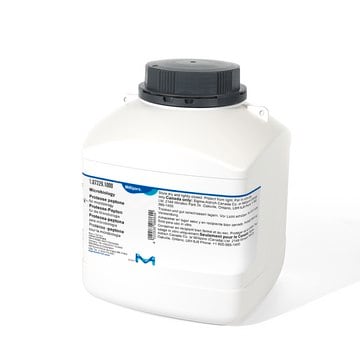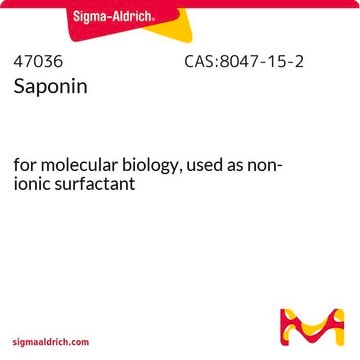P0431
Proteose Peptone
Enzymatic hydrolysate
Synonym(s):
Peptone from animal tissue
About This Item
Recommended Products
biological source
bovine
plant
Quality Level
form
powder
nitrogen analysis
10.0-15.5% total
loss
≤5% loss on drying
pH
6.6-7.6
application(s)
food and beverages
microbiology
InChI
1S/C13H24O4/c1-6-13(3,7-2)9-8-10(11(14)16-4)12(15)17-5/h10H,6-9H2,1-5H3
InChI key
AIUDWMLXCFRVDR-UHFFFAOYSA-N
Looking for similar products? Visit Product Comparison Guide
Related Categories
Application
Storage Class Code
11 - Combustible Solids
WGK
WGK 3
Flash Point(F)
Not applicable
Flash Point(C)
Not applicable
Personal Protective Equipment
Choose from one of the most recent versions:
Certificates of Analysis (COA)
Don't see the Right Version?
If you require a particular version, you can look up a specific certificate by the Lot or Batch number.
Already Own This Product?
Find documentation for the products that you have recently purchased in the Document Library.
Customers Also Viewed
Articles
Culture media provides a habitat with suitable nutrients, energy sources, and certain environmental conditions for the growth of microorganisms. The components of the culture media range from simple sugars to peptones, salts, antibiotics, and complex indicators.
Our team of scientists has experience in all areas of research including Life Science, Material Science, Chemical Synthesis, Chromatography, Analytical and many others.
Contact Technical Service










